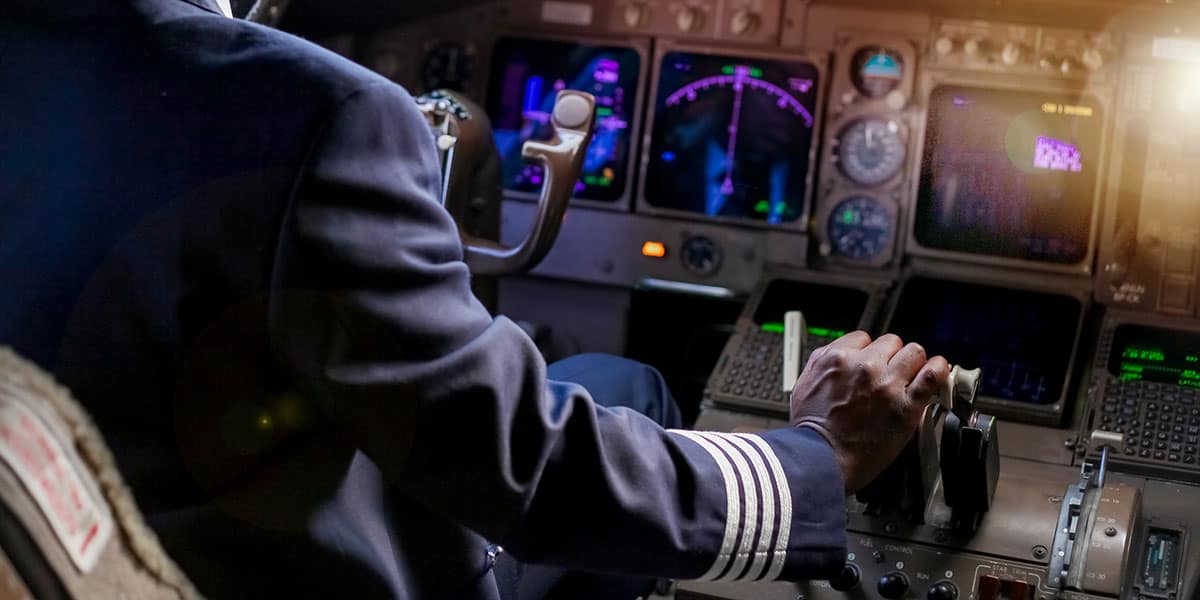New Embry-Riddle Study Explores Gender and Ethnic Biases in Aviation

In two separate studies, when more than 700 study participants looked at photographs of 240 potential aviation job candidates, they selected white males for pilot and co-pilot positions significantly more often than they selected women or those with an ethnic heritage other than white, Embry-Riddle Aeronautical University researchers reported.
The group’s findings, based on an in-person experiment with 50 study participants as well as an online survey of 651 people, were published Feb. 17, 2024, by the peer-reviewed journal “Technology in Society.”
“A conspicuous gender-based bias was evident, with males predominantly selected for piloting roles, while service-oriented roles such as flight attendants were overwhelmingly attributed to females,” wrote Drs. Stephen Rice and Albert J. Boquet of Embry-Riddle, with study co-author Dr. Megan Harris of the University of Toronto.
“From an ethnic perspective, Caucasians were more frequently envisaged as pilots,” the researchers added. “In contrast, members of other ethnic groups, and particularly members of African descent, were often relegated to lower-paying service positions.”
Understanding the impact of unconscious biases will be essential to bolstering the aviation workforce, said Rice, a professor of Human Factors at Embry-Riddle. As of 2022, only 6.34% of FAA-certified pilots identified as female, the Pilot Institute found. The U.S. Bureau of Labor Statistics has reported that 93% of the country’s aircraft pilots and flight engineers in 2021 identified as “white, non-Hispanic.”
“Expanding the talent pipeline remains key to meeting the demand for new aviation professionals,” Rice said, noting that the global aviation industry will need 649,000 new pilots and 690,000 new maintenance technicians over the next 20 years, according to The Boeing Company.
“To expand the aviation talent pool and build workforce capacity, we have to better understand biases,” said Boquet, who is also a professor of Human Factors.
Matching Faces With Jobs
The Embry-Riddle studies used a “card-sorting” method, Rice explained.
For the first study, 50 participants were seated in front of a computer, where they were presented with 200 photographs of people who were either male or female, as well as members of one of four ethnic categories — white, or of African, Asian or Hispanic descent. For each photo, study participants were asked to select the aviation job they felt was best suited for that individual.
The in-person study group, with a mean age of 22.34 years, included 20 females, 29 males and one person who identified themselves as “other.” Thirty participants self-identified as white, while the rest reported being Hispanic, Native American, Black, Asian or in another category.
The results of the in-person study were unambiguous.
“Caucasians were much more likely to be chosen for piloting jobs, while the top choice for individuals of Asian and Hispanic descent was `flight attendants,’ and the top choice for individuals of African descent was `TSA agent,’ with `ground crew’ as a close second choice,” researchers reported. “Males were much more likely to be categorized as suited to piloting or ground crew positions than females, while females were most often categorized as being suited to flight attendant and gate agent positions.”
An accepted statistical method (the Chi-Square Test of Independence) was used to analyze the results. In the first study, females were identified as pilots or co-pilots in 9.9% and 13.2% of all trials, respectively. Males were selected for pilot or co-pilot positions in 16.1% and 20.8% of all trials.
White individuals were identified as pilots or co-pilots 19% and 22.3% of the time, respectively, compared with 11.4% and 17.4% for those of Asian descent. By comparison, those of African descent were identified as pilots or co-pilots much less frequently — 10.3% and 11.6%, for each occupation — and they were far more likely to be identified as TSA agents (21.7%) or ground crew members (19.8%). Individuals of either Hispanic or Asian descent were selected for pilot positions in 11.4% of the trials. Hispanic individuals were chosen to be TSA agents 15.2% of the time and as ground crew members in 16.1% of all trials.
Online Survey Offers Similar Outcomes
A second online study involved 40 images and 651 participants with a mean age of 34.63. The second study largely replicated the results from the first one.
“Caucasian males were again the top pick for piloting jobs, [and] Asian males were not far behind,” researchers wrote. “Asian females were again the top choice for flight attendants, with Hispanic and white females close behind. Again, African males were most likely to be put in TSA agent or ground crew jobs, and Asian and Hispanic males also received a fairly similar distribution of selection for all jobs.”
Researchers cautioned that their research did not explore the underlying reasons for apparent biases in job classification selections; they don’t know how underlying factors such as cultural influences, historical media portrayals or personal experiences may have impacted study participants’ choices.
The work confirms earlier research, including a 2021 peer-reviewed paper by Rice’s former graduate student Dr. Nadine Ragbir (‘21). Of that study, Ragbir had said, “Just being able to make people aware that there are unconscious biases that could influence their thoughts and actions is a step forward.”
Rice and Boquet worked on this project with Megan Harris of the University of Toronto, as well as multiple students. The participating students were Stephen Woods, Connor Rice, Danielle Rosales, Cassandra Domingo, Matthew Bivens, Ryan Lange and Sean Crouse (who is also the faculty within the College of Aviation).
Research citation: *Woods, S., Harris, M., Rice, S., Boquet, B., *Rice, C., *Rosales, D., *Domingo, C., *Bivens, M., *Lange, R., Winter, S., and *Crouse, S. Using Social Role Theory to Predict How Gender and Ethnicity of Aviation Job Candidates Affect Perceived Job Classifications. “Technology in Society.” DOI: https://doi.org/10.1016/j.techsoc.2024.102481.

 Ginger Pinholster
Ginger Pinholster